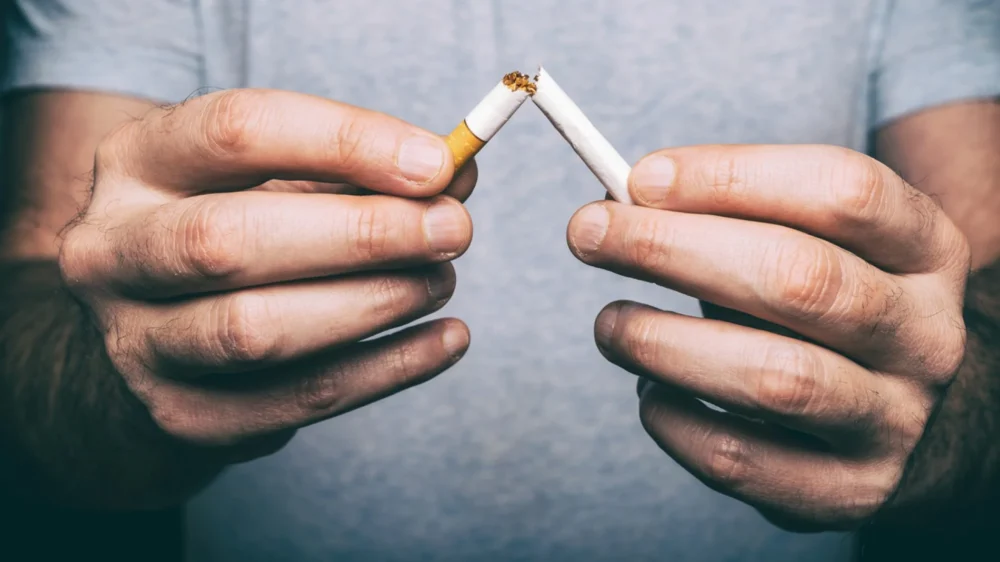Smoking is one of the leading causes of preventable deaths in the world. According to the World Health Organization, smoking kills more than 7 million people each year. If you’re a smoker, quitting smoking is one of the best things you can do for your health.
There are many ways to quit smoking, and no one method is right for everyone. Some people are able to quit smoking on their own, while others need medication or other assistance. Also, some people may need to try several different methods before they find one that works for them.
If you’re ready to quit smoking, here are some efficient ways to do it:

Source: unsplash.com
- Set a quit date and stick to it. Choose a date that’s not too far in the future so you don’t have time to change your mind, but not so soon that you’re not prepared. Once you’ve decided on a date, tell your family and friends about your plans and ask for their support.
- Get rid of all tobacco products in your home and office. This includes cigarettes, cigars, pipes, ashtrays, lighters, and matches. Don’t allow yourself to have even one cigarette.
- Avoid places where you used to smoke. If you smoke at work, for example, try to take a different route to and from work so you don’t have to pass by the smoking area.
- Find alternatives to smoking. When you feel the urge to smoke, do something else instead. Drink a glass of water, take a walk, chew gum, or eat a piece of fruit.
- Talk to your doctor about quitting smoking. He or she can prescribe medication that can help you quit smoking and provide other support.
- Join a support group. There are many groups available to help smokers quit. These groups can provide moral support and helpful tips.
- Stay positive. Quitting smoking is a challenge, but it’s important to remember that you can do it. Believe in yourself and don’t give up.
- Seek professional help if you need it. If you’ve tried to quit smoking on your own and haven’t been successful, consider seeing a therapist or counselor who can help you overcome your addiction.
- Try nicotine replacement therapy. This involves using products like gum, patches, or lozenges that contain nicotine to help reduce withdrawal symptoms.
- Use medication to help you quit smoking. There are several medications available that can help you quit smoking, including bupropion and varenicline. Talk to your doctor about which one might be right for you.
- CBD gummies can help. CBD is an active ingredient in cannabis that does not produce the psychoactive effects associated with marijuana use. Especially CBD gummies from CFAH.org has been shown to help reduce anxiety and improve mood, both of which can make it easier to quit smoking.
Things you should never do when trying to quit smoking:

Source: pexels.com
- Don’t smoke even one cigarette. It’s important to remember that even one cigarette can restart your addiction.
- Don’t use tobacco in any form, including chew, dip, or snuff.
- Don’t drink alcohol while you’re trying to quit smoking. Alcohol can increase your urge to smoke. Also, don’t go to bars or clubs where people are smoking.
- Don’t try to quit smoking without help. Quitting smoking is a difficult process, and you’re more likely to succeed if you have support from family, friends, or a professional.
- Don’t get discouraged if you have a slip-up. If you smoke one cigarette, it doesn’t mean you’ve failed. Just get back on track and continue working toward your goal of quitting smoking.
If you’re ready to quit smoking, there are many ways to do it. Find the method that works best for you and stick with it. Remember, you can succeed if you believe in yourself and don’t give up.
Benefits of quitting smoking

Source: pexels.com
Let’s now cover some of the benefits of quitting smoking. These may provide some extra motivation to kick the habit for good.
- You’ll save money. Cigarettes are expensive, and the money you save by not smoking can add up quickly.
- Your health will improve. Quitting smoking has many health benefits, including reducing your risk of heart disease, cancer, and other smoking-related illnesses.
- You’ll look and feel better. Smoking causes premature wrinkles and yellowing of the teeth. Quitting smoking will help your skin look healthier and your teeth whiter.
- You’ll have more energy. Smoking is a major cause of fatigue. When you quit smoking, you’ll likely have more energy.
- You’ll reduce your stress levels. Smoking is a major source of stress. Quitting smoking can help you feel calmer and more relaxed.
- You’ll improve your breathing. Smoking damages your lungs and makes it difficult to breathe. When you quit smoking, your lung function will improve and you’ll be able to breathe more easily.
- You’ll reduce your risk of other health problems. Smoking is linked to many other health problems, such as stroke, osteoporosis, and erectile dysfunction. Quitting smoking will reduce your risk of these and other health problems.
- You’ll have more time. Smoking takes up a lot of time. When you quit smoking, you’ll have more time to do the things you enjoy.
- You’ll set a good example for others. If you have children, quitting smoking will set a good example for them and help them avoid tobacco use in the future.
- You’ll feel proud of yourself. Quitting smoking is a difficult feat, and you can be proud of yourself for accomplishing it!
Tips for staying smoke-free

Source: spunout.ie
Now that you’ve quit smoking, it’s important to do everything you can to stay smoke-free. Here are some tips to help you:
- Avoid places where people are smoking. This may mean avoiding bars, clubs, or other social gatherings where smoking is common.
- Avoid smokers. If you have friends or family members who smoke, try to spend less time with them.
- Keep your hands busy. When you feel the urge to smoke, do something else to occupy your hands, such as knitting, painting, or playing a musical instrument.
- Avoid alcohol. Drinking alcohol can increase your urge to smoke. If you must drink, do so in moderation.
- Get plenty of exercise. Exercise can help reduce stress and ease nicotine cravings.
- Eat healthy foods. Eating healthy foods will help your body recover from the damage caused by smoking and give you the energy you need to stay active.
- Drink lots of water. Staying hydrated will help your body detoxify and will also help reduce nicotine cravings.
- Avoid triggering foods and beverages. Certain foods and drinks, such as coffee or candy, may trigger cravings for cigarettes. Avoid these trigger foods and drinks if possible.
- Get enough sleep. Getting enough rest will help your body recover from the damage caused by smoking and will also help reduce stress levels.
- Seek support from family and friends. Let your family and friends know that you’ve quit smoking and ask for their support. You may also want to join a support group for people who are trying to quit smoking.
Science says it all – quitting smoking has myriad benefits, both for your health and your wallet. What are you waiting for? If you’re ready to quit, there’s no time like the present!




